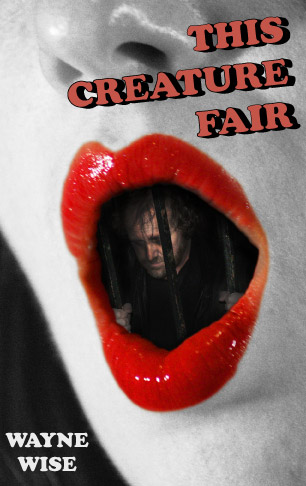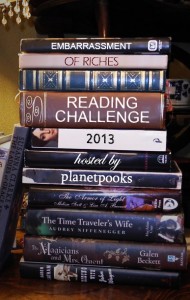The entire text of it follows...
book review: this creature fair
Disclosure: The author is a friend of mine. I’d considered not reviewing the book, due to my obvious bias, but here’s the thing: I’ve also studied literature for about ten years, and been a librarian for ten more, so I think I can give you a working guide to this book without descending (too far) into fangirl squee.

Photo by Marcel Lamont Walker, all rights reserved.
Title: This Creature Fair
Author: Wayne Wise
Genre: Literary urban fantasy
Publisher: Amazon Digital Services (Kindle edition) and CreateSpace (print edition)
Length: 397 pages.
Challenge: Embarrassment of Riches TBR Challenge, Platinum level
Summary: An unexpected encounter with celebrity changes the course of one fan’s life, and an entire city’s heartbeat.
Analysis
There are two broad strains of community structure in contemporary urban fantasy. One consists of a divided kingdom, a world in which there are supernatural creatures and/or an organized system of magic, a world that coexists with a mundane reality that is blissfully unaware of the other community’s existence, even though both are anchored in the same physical geography. Then there’s the community in which some “mundane” folks are aware of the fantasy community, but interact with it uneasily, forever conscious that there are two worlds that don’t play nicely together, but, of necessity, sometimes overlap. In the former kind of book, the narrative relies on the fantasy community preventing a threat within its ranks that could ripple over into the mundane community, to the ruin of both. In the latter kind, the mundane and fantasy communities work to lay aside their differences and resolve a problem, for the mutual benefit of both.
This Creature Fair is singular in that it takes neither of these roads, forging instead a middle path that opens up a new way to think about both fantasy and community in urban settings, which makes it the kind of book you read and think about, and discuss with your genre-fiction-loving friends.
The plot revolves around Nick, a serious music fan, who travels to Washington D.C. to see the enigmatic Morrigan Blue perform. Morrigan takes a liking to Nick on sight, and they strike up a rock star/groupie relationship. Unbeknownst to Nick, however, Morrigan is actually one of the leanan sidhe, a fae creature who can only exist in our world by feeding on human artistic energy; in Morrigan’s case, that energy is musical, which makes Nick, who has steeped himself in sound all his life, the equivalent of a three-course meal at a five-star Michelin restaurant. Having almost exhausted her previous energy supply, Morrigan insinuates herself into Nick’s life and invites herself to Pittsburgh so she can more easily feed off of him.
So far, so normal, for a fantasy yarn. But it’s when we get to Pittsburgh that things get interesting. Nick may be the nominal hero of the tale, but Pittsburgh is its great lady, and the novel’s excellence rests heavily on its author’s ability to bring the city to life, as if it were a separate character. The city, and the people who live in it, are painted with loving, detailed brushstrokes by a person who has clearly lived in it a long time, and knows how to make it sing–if you’ll pardon the pun–for people who’ve never been here. Morrigan can tell, almost instantly, that feeding off of Nick will be more difficult than she’d bargained for, as Nick is one very important strand woven into a tapestry of people–both family and fictive kin–who care for each other deeply, and won’t let evil win without a fight.
This, of course, brings us to the problem of evil in the novel, which is not so much a problem as it is an interesting twist, in Wise’s hands. Morrigan is not evil, as the Big Bad of the typical urban fantasy might be: she’s simply a creature whose needs conflict with her environment, forcing her to do things she wouldn’t have to do back home. Alas, she cannot go home, the door to faeryland having been closed to her by a tragedy not of her own making. And so, as the body count starts to mount, you find yourself in the curious position of having sympathy for the “devil,” who, at heart, just wants her homeland back, and kills only to survive in a world that, ultimately, cannot be other than hostile to her and her kind.
Another element that makes This Creature Fair a dark horse in the urban fantasy pack is its approach to magic. No fireballs or incantations here: in Wise’s world, magic is something all humans have, a fact of which they are rarely cognizant. Some of Nick’s friends–characters who also appear in Wise’s other novels–have had interactions with other worlds in which magic operates differently, and are aware (as much as any human can be) of both their own magic and that of other realms. It is they who first realize something is wrong with Nick, and subsequently figure out a way to save him, and Pittsburgh, from Morrigan. And while this particular strain of magic is steeped in sound, you could also argue–as I think Wise is, here–that love is the greatest magic. Not the cardboard hearts and pink candies kind, but true love: the kind that’s rooted in blood, sex, arguments, candor, and–most importantly–time.
The book’s other appeal factors make it difficult to compare to other books, or peg into a neat little genre box. Like much literary fiction, the pacing is slow and deliberate, with a heavy emphasis on characterization and relationships, making the best author comparisons Jonathan Carroll (overall) and Charles de Lint (pacing, attention to detail, characterization). However, the language choices are clear, simple, and precise, which will appeal to those who are reading more for fun than for lit analysis. Readers who like psychological fiction will, on the whole, appreciate the emphasis on introspection and reflection, while those who enjoy naturalistic fiction will appreciate Wise’s ability to communicate really complicated things in very simple–but not simplistic–ways.This Creature Fair is, in short, a tale well-told, for the kind of reader who either seeks out unusual tales in the first place, or is open to an author doing something differently with established tropes.
So, please: try this. Report back. Call me on my bias, and point out things I missed. And then try King of Summer, Bedivere, Scratch, etc.
Recommended for: The fantasy reader who’s read everything else, avid readers open to a singular experience, Pittsburghers hoping to recognize themselves or people/places they know, people who believe in magic, and people who secretly want to.

No comments:
Post a Comment